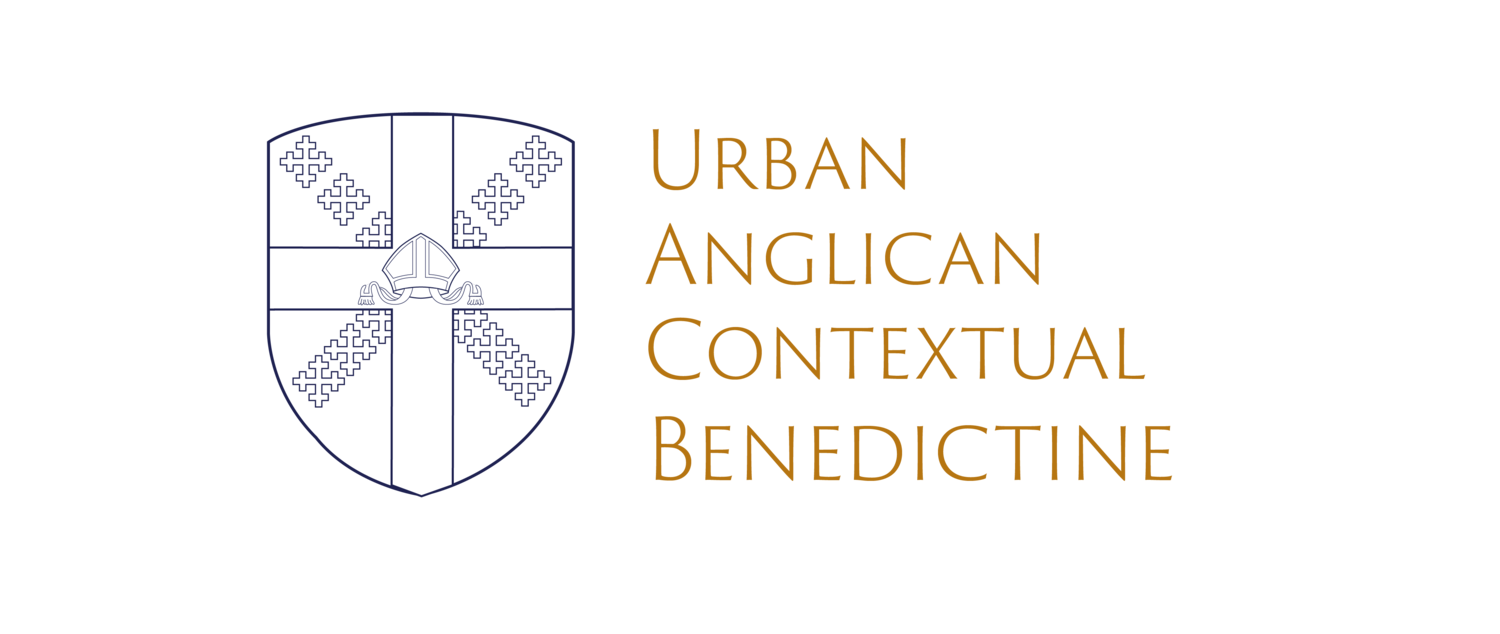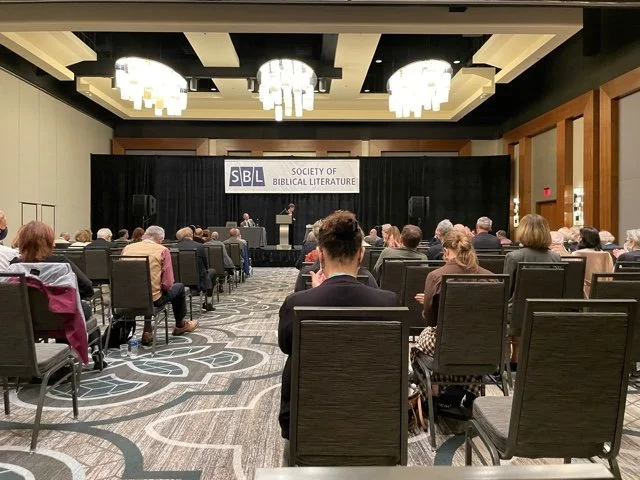Reflections from SBL
The historic city of San Antonio played host to the first in-person conference of the Society of Biblical Literature (SBL) and American Academy of Religion (AAR) since the pandemic struck. Long before being founded as a Spanish mission and colonial outpost in 1718, Payaya natives called the land “Yanaguana,” refreshing waters. Indeed, after twenty months of Covid-19 chaos, being enveloped by the elite Biblical scholarship and warmth of the theological academy felt like refreshing waters.
The city’s storied River Walk bore thousands of scholars from around the world, all proudly wearing their SBL/AAR name badges. As I passed by their clusters of conversation throughout the city, I overheard everything from debates about postcolonial critique to happy reunions of MDiv classmates. As it was my first time attending, I was pleasantly surprised to find such a jovial, familiar and hospitable community.
Once off the beaten River Walk path and inside the Gonzalez Convention Center, I was primed to dig into the didactic feast prepared. In the first session, Kimberly Diaz, an outstanding scholar and self-proclaimed weightlifter, delivered her thoughts on the perpetuation of Christian masculinity in sports, worship and culture. Intrigued, I introduced myself to the unit presider, Jeffrey Scholes. Scholes kindly affirmed my interests, then invited me to stay for their business meeting! I was not treated as the unfamiliar, entry-level student that I am, but rather as a respected colleague with shared passions.
Our own General Professor Julie Faith Parker delivered a brilliant paper entitled, “Signs: Scions and Semantic Signs: The Naming of Prophets’ Children as Acts of Violence.” This well-crafted, profound deep-dive into the dangerous power of naming children in the Hebrew bible was so well attended that after Parker finished her paper, several audience members left the room. Not realizing what had just happened, someone explained to me that conference participants will often hop from room to room, selecting to hear only their favorite scholars in the very specific time frames given on the program.
Going from class to class I started to feel like a pro; meeting new scholars, hopping sessions and learning new words like catachresis and aptronym. It was then I noticed a class title in the program strikingly similar to a significant argument I was writing in my General honors thesis. I sought guidance from a familiar face, my New Testament Professor Jee Hei Park, (now at the Seminary of the Southwest). Over brunch, she wisely advised I go to the class and listen closely for similarities and distinctions. In full agreement, I eagerly set out on my mission.
Baylor’s Brian Gamel was presenting his paper, “Is Jesus a Martyr? Narratives of Noble Deaths and the Passion of Jesus in Mark.” My argument was that the Markan Jesus died an ignoble death, subverting imperial martyrdom. Nervous that Gamel’s project had rendered my argument moot or passé, I walked into the conference room both nervous and excited. However, this room was unlike the ones I had previously attended. Instead of the typical classroom style with rows of seats set up to face the presenters’ pulpit, here were tables formed together in a square, like a board meeting. I had just walked into the Markan Seminar, a society of thirty of the top Markan scholars in the academy. Shuddering inside with imposter syndrome, it was too late to escape. I reminded myself, “I’m on a mission, stay focused!”
Gamel was first to present. Not minutes into the responses to his paper did the room heat up with fierce debate. At one point, a white-haired professor actually rose out of his seat and screamed! He was convinced Gamel had the Greek wrong. This was better than Netflix! Gamel handled the challenge with mature composure. When the session concluded, I made a beeline to Gamel. By the end of that brief conversation, we were fast friends, and set a follow-up talk the next day. At breakfast, Gamel reassured me that our projects were complimentary. He gave sagacious feedback and emphasized that he would like to stay in touch and work on something together in the future.
While I hesitate to mention anything disparaging about these wonderful new memories, I still cannot ignore one disturbing thought. There is still a severe lack of diversity in the theological academy. While I was encouraged to see many women in attendance, I found myself counting participants of color on one hand. In fact, I counted more people of color on the service staff in the convention center than participants in the conference. As a cisgender, straight, white male myself, I wondered both how I might be complicit in this very visible disparity, and how it could be changed.
The city of San Antonio typically conjures images of the 1836 bloody standoff at the Alamo. However, I reflected on how the Spanish colonized the area, ‘converting’ many of the Payaya natives to their version of Christianity. With their spread of religion also came the spread of disease, resulting in major death tolls. Why is it that Christianity has so often grown by conquest, rather than compassion? Might this history of colonizing Christianity explain why too few people of color feel comfortable at the table of theological scholarship today? I even wondered, would my experience of SBL hospitality be different if I was not a white man? To clarify, my questions are not accusations, but appeals. I pray not to incite defensiveness, but to invite inventiveness.
I end where the conference began. Harvard trained, master linguist and professor James VanderKam delivered his Presidential Address. As he concluded, he appealed to a “past world” of only white men in the academy, “with few coming from outside their circles.” While I disagree that his description was of the past and not the present, I appreciated his hopeful words, “Diversity enlivens the discipline.” Ultimately, I left SBL/AAR feeling welcomed and inspired, but also armed with a renewed sense of zeal for representation in this sacred assembly.
- John Markowski

